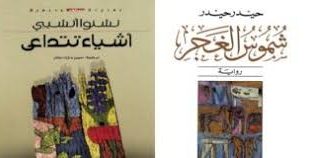
قوة الكاتبات وتأثيرهن على الأدب غالباً ما تم التقليل من شأنه وتجاهله، وهذا صحيح بشكل خاص بالنسبة للكاتبات العربيات. كثير منهن تم نسيانهن، وأولئك اللواتي نجحت أعمالهن في البقاء غالباً ما تذكر أعمالهن أكثر من أسمائهن. هذا التعتيم المتعمد، الذي تم تطبيعه على مر العصور، لا يزال مستمراً إلى حد ما في الأزمنة الحديثة. لا يمكن إنكار أن النساء العربيات لعبن دوراً رائعاً في تقديم روائع أدبية، مُبدِعات شخصيات وقصصاً عميقة ومُتقنة تجعل القراء ينغمسون فيها وتُثير فيهم مجموعة واسعة من المشاعر.
من بين هؤلاء الكاتبات، غادة السمان، التي تستكشف في أعمالها موضوعات الحب والفقدان والتوقعات الاجتماعية. في روايتها “كوابيس بيروت”، تصف ببراعة صراعات وصمود النساء خلال الحرب الأهلية اللبنانية، مُظهِرة عوالمهن الداخلية ومعاركهن الخارجية. كتاباتها توفر نظرة مؤثرة إلى عقول من يعانون من الصراعات، مُلتقِطة مخاوفهم وآمالهم وأحلامهم بعمق لا مثيل له.
كاتبة بارزة أخرى هي حنان الشيخ، التي تتناول بجرأة قضايا النوع الاجتماعي والجنس في العالم العربي. روايتها “نساء الرمل والمر” تكشف عن تعقيدات الهوية النسائية والقيود التي تفرضها الأعراف التقليدية. من خلال سردها الحي، تُحيي الشيخ أصوات النساء اللواتي يتنقلن بين الحب والرغبة والاستقلالية في مشهد ثقافي تحدي.
رواية أخرى بارزة هي “ثلاثية غرناطة” للأديبة المصرية رضوى عاشور، التي قدمت مساهمات هامة في الأدب من خلال الرواية التاريخية. تتشابك الرواية ببراعة بين قصة سقوط غرناطة في إسبانيا والقصص الشخصية لسكانها، مُسلطة الضوء على موضوعات الهوية الثقافية والمقاومة ودور النساء في الحفاظ على التراث. أعمال عاشور تقف شاهدة على قوة السرد في إضاءة التاريخ وتعزيز التعاطف.
تم تهميش مساهمات الكاتبات العربيات غالباً، حيث اضطر العديد منهن للنشر تحت أسماء مستعارة أو واجهوا عقبات كبيرة للحصول على الاعتراف بأعمالهن. على سبيل المثال، مي زيادة، التي كانت شخصية أدبية مؤثرة، كان عليها أن تتنقل بين صالون أدبي يهيمن عليه الذكور في مصر أوائل القرن العشرين. رغم هذه التحديات، تركت مقالاتها وشعرها أثراً لا يمحى على الفكر العربي.
في الأزمنة الحديثة، يستمر النضال، كما يتضح من الكاتبات مثل جمانة حداد، التي تكتب عن تمكين المرأة وتتحدى الأعراف الاجتماعية من خلال أعمالها الاستفزازية. كتابها “قتلتُ شهرزاد: اعترافات امرأة عربية غاضبة” يتحدى الصور النمطية ويدعو إلى إعادة تقييم أدوار النساء في المجتمع العربي.
عالم الأدب كان ولا يزال عالماً واسعاً، إلا أن مشاركة النساء العربيات في هذا المجال قوبلت بالمقاومة والتحيز. هذه المقاومة تمثل فقداناً كبيراً للإمكانات ووصمة على تاريخ الأدب يجب معالجتها. الاحتفال والاعتراف بمساهمات الكاتبات العربيات ليس فقط من أجل العدالة؛ بل من أجل إثراء النسيج الأدبي العالمي بأصوات ورؤى متنوعة.
إرث هؤلاء الكاتبات، اللواتي اضطررن لتجاوز عقبات هائلة لنقل قصصهن، يجب أن يُحتفل به ويُشاد به. الرحلة نحو تمثيل عادل ومتساوٍ لجميع الأصوات في الأدب مستمرة، وتكريم أعمال الكاتبات العربيات خطوة حاسمة في هذا الاتجاه.
إعداد: طيف محمد حميد
تدقيق وتعديل الصورة: تبارك عبد العظيم
المراجع:
The power of women authors and their influence on literature has often been unjustly diminished and overlooked, and this is particularly true for Arab women writers. Many of them were forgotten, and those whose works survived were often remembered more by the titles of their works than by their own names. This purposeful overshadowing, which has been normalized over the centuries, still persists to some extent in modern times. It is undeniable that Arab women have played a magnificent role in giving the world masterpiece after masterpiece, delivering characters and stories so deep and well-crafted that they immerse readers and evoke a wide range of emotions.
One such author is Ghada al-Samman, whose works explore themes of love, loss, and societal expectations. In her novel “Beirut Nightmares,” she masterfully depicts the struggles and resilience of women during the Lebanese Civil War, shedding light on their inner worlds and external battles. Her writing provides a poignant look into the minds of those enduring conflict, capturing their fears, hopes, and dreams with unparalleled depth.
Another notable figure is Hanan al-Shaykh, who boldly addresses issues of gender and sexuality in the Arab world. Her novel “Women of Sand and Myrrh” reveals the complexities of female identity and the constraints imposed by traditional societal norms. Through her vivid storytelling, al-Shaykh brings to life the voices of women who navigate love, desire, and independence in a challenging cultural landscape.
Radwa Ashour, an Egyptian novelist and scholar, made significant contributions to literature with her historical fiction. Her novel “Granada (Trilogy)” intricately weaves the narrative of the fall of Granada in Spain with the personal stories of its inhabitants, highlighting themes of cultural identity, resistance, and the role of women in preserving heritage. Ashour’s work stands as a testament to the power of storytelling in illuminating history and fostering empathy.
The contributions of Arab women writers have often been overshadowed, with many having to publish under pseudonyms or face significant barriers to having their work recognized. For instance, May Ziadeh, an influential literary figure, had to navigate a male-dominated literary salon in early 20th century Egypt. Despite these challenges, her essays and poetry left an indelible mark on Arab intellectual thought.
In more recent times, the struggle continues, as seen with authors like Joumana Haddad, who writes about female empowerment and challenges societal norms through her provocative works. Her book “I Killed Scheherazade: Confessions of an Angry Arab Woman” challenges stereotypes and calls for a reevaluation of women’s roles in Arab society.
The world of literature has been an ever-expanding realm, yet the participation of Arab women in this domain has been met with resistance and prejudice. This resistance represents a significant loss of potential and a blemish on the history of literature that must be addressed. Celebrating and recognizing the contributions of Arab women writers is not just about justice; it is about enriching the global literary tapestry with diverse voices and perspectives.
The legacy of these writers, who have had to overcome immense obstacles to share their stories, should be celebrated and praised. The journey towards a fair and equal representation of all voices in literature is ongoing, and honoring the works of Arab women authors is a crucial step in that direction.
Written by: Taif Mohammed Hameed
Edited by: Tabarek Alghnaimawi
References:
- Ghada Al-Samman, the novel “Beirut Nightmares.”
- Hanan Al-Shaykh, the novel “Women of Sand and Myrrh.”
- Radwa Ashour, the novel “Granada (Trilogy).”
- Joumana Haddad, the book “I Killed Scheherazade: Confessions of an Angry Arab Woman.”
 الباحثون العراقيون Iraqi Researchers
الباحثون العراقيون Iraqi Researchers

